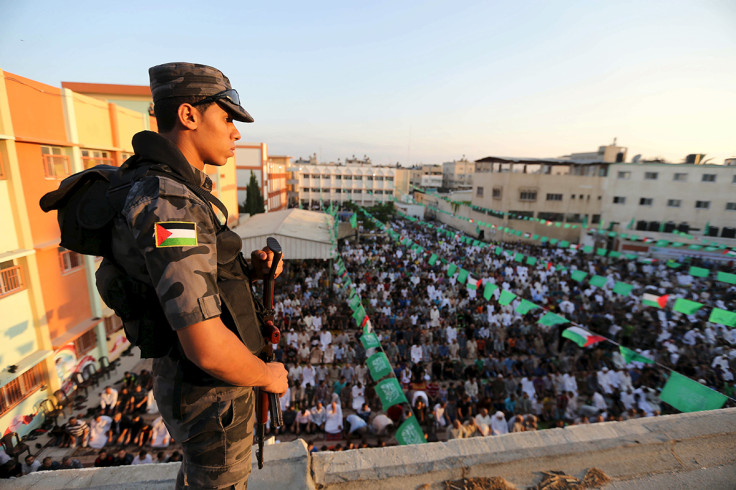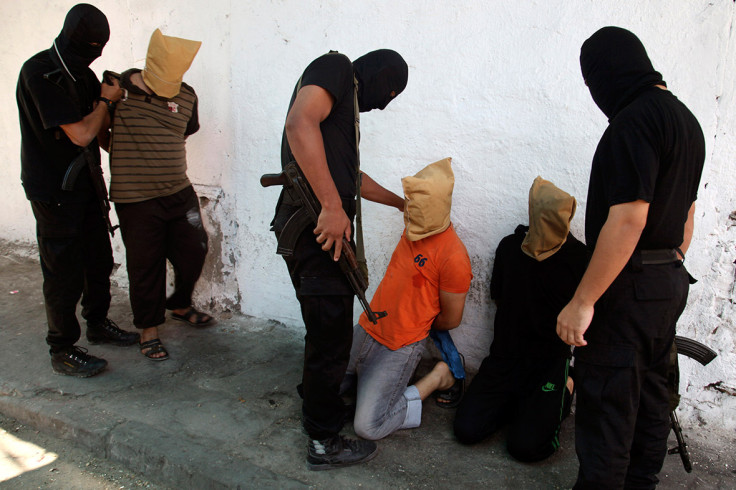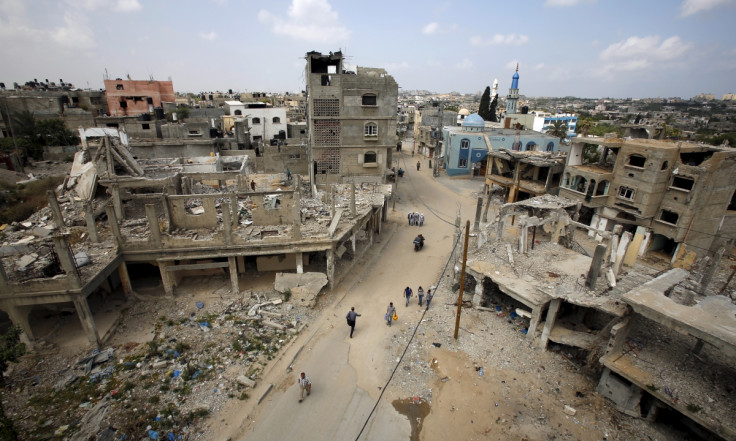Letter from Gaza: Hamas executions divide Palestinians amid the suffocation of Israel's siege

Hamas officials have been quick to defend their decision to execute three murderers at dawn on 31 May, despite the killings being roundly condemned by international human rights groups. Hamas claim that during the investigation and trial of the men, full legal rights were afforded to them and that their decision had been one of safeguarding the public in the Gaza Strip.
But despite these statements, public opinion in Gaza on the executions is divided. Critics point out that under Palestinian law, all executions have to be approved by the Palestinian president, Mahmoud Abbas. The dawn executions of the alleged murderers (two of them by firing squad and the third, a policeman, was hanged) highlight how far Hamas, which has run Gaza since 2007, remains estranged from Abbas and his Fatah movement in the West Bank.
Hamas officials have argued that the executions were intended to improve security in Gaza, well within the movement's remit. Mohamed Farag Al-Ghoul, the Gaza-based chairman of the legal committee of the Palestinian Legislative Council, said that the families of the murder victims deserved to have justice and that the executions would avoid public acts of vengeance in the Palestinian community.
As for the position of Abbas, Ghoul said that the president's term had ended − alluding to the fact that the West Bank and Gaza have not had elections since 2006, almost a decade ago − and his role in the process is no longer legal. He also said that Abbas was not concerned with the safety of Gaza Strip and insisted that capital punishment is an obligation by law.
The International Center for Human Rights (ICHR) issued a statement demanding that the authorities in Gaza Strip should not carry out the death sentences. It called for the killers to be given long custodial sentences "as a deterrent".
While following the prosecution process in the Gaza Strip, ICHR claimed that some of the accused were arrested without legal warrants, through raids on their houses. Some civilians are prosecuted in military courts and a number of accused people were tortured in detention.

Human rights activist Mustafa Ibrahim told IBTimes UK that he is completely against the death penalty in principle because it has proved ineffective in lowering crime rates, in addition to being a punishment that cannot be rescinded.
Ibrahim stated that the Hamas government is trying to win public opinion, not for the sake of law and justice, but rather to intimidate the people of the Gaza Strip after it failed to fulfil the minimum needs of citizens. Ibrahim also argued that crimes must be condemned and convicts must be punished robustly, but there is an ethical imperative to look at its causes and originators.
Since Hamas took control of the Gaza Strip in 2007, its government has executed 14 convicts without the legal authorisation from PLO, and 17 other convicts who were executed during the latest offensive on Gaza in 2014.
Lawyer and human rights activist Elham Abu-Jabal told IBTimes UK she has noticed a rise in the numbers of crimes. Abu-Jabal believes the siege imposed on Gaza Strip and its psychological, social and economic effects are a major contributor to the problem.
She also insists that carrying out of the death penalty without the permission of the president is a blatant violation of the Palestinian law. Abu-Jabal believes the death penalty will always be completely ineffective as long as the root causes remain.
Controversy rages among those who support capital punishment and those who don't. Many believe there are more effective methods to impose order and reduce crime rates in the Palestinian community.
Noting that the majority of democracies in the world have abandoned the death penalty, it may be that Abbas will eventually seek its elimination from the Palestinian constitution, especially after the prodigious number of human rights agreements he has signed with international community and democratic states all over the world.
It is clearly noticeable that the death penalty cannot be the right answer to all of our problems here, as we genuinely believe society must strive for more effective and reliable methods to raise awareness among its psychologically and economically suffocated individuals.
Many theocracies and dictatorships retain the capital punishment as a terror weapon against their own communities, and I certainly don't think we should fall into such category – not anymore.

© Copyright IBTimes 2025. All rights reserved.





















